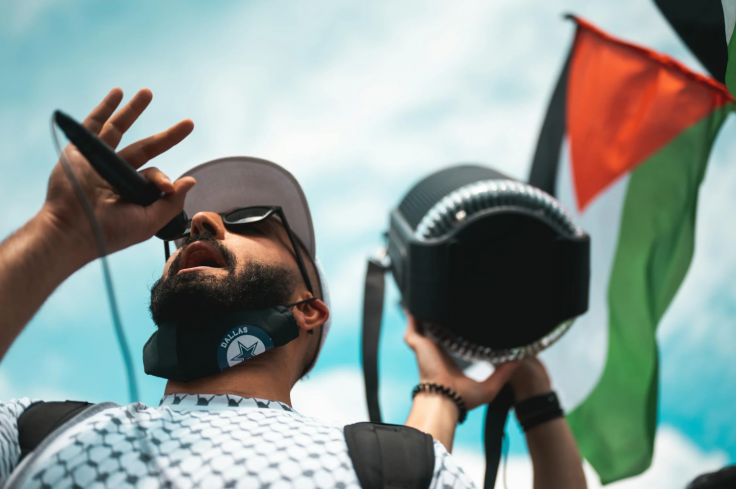Philadelphia Police Detain 19 Pro-Palestinian Protesters in University of Pennsylvania Occupation Attempt
ByPhiladelphia police detained 19 pro-Palestinian protesters, including seven students, at the University of Pennsylvania during a Friday night demonstration on campus.
The protest, which escalated into an attempted occupation of Fisher-Bennett Hall, resulted in a tense confrontation and subsequent arrests. This incident follows a series of protests on campus, reflecting ongoing tensions and highlighting the complexities of balancing activism with campus safety.

The Occupation Attempt
On Friday night, pro-Palestinian protesters entered Fisher-Bennett Hall with the intention of occupying the building. The protesters secured exit doors with zip-ties and barbed wire, and barricaded them with metal chairs and desks. Windows were covered with newspaper and cardboard to obscure visibility. According to the university's Division of Public Safety (DPS), the protesters also blocked outside entrances with bike racks and additional metal chairs.
Inside the nearly 100-year-old building, which houses the English, music, and cinema studies departments, protesters attempted to establish a stronghold. Police reported recovering lock-picking tools and homemade metal shields fashioned from oil drums, indicating a level of preparation and intent to maintain the occupation.
The situation escalated when protesters refused to disperse and ignored police commands. This led to the arrest of 19 individuals, including seven students. Of these, 12 were issued citations for failure to disperse and failure to follow police commands and were subsequently released. However, seven protesters remain in custody, facing more serious charges, including one individual accused of assaulting a police officer.
University's Response and Public Safety Measures
The University of Pennsylvania has been navigating a challenging landscape of campus activism and safety concerns. In a statement, the university's Division of Public Safety detailed the measures taken to secure the campus and ensure the safety of all involved. The use of lock-picking tools and homemade metal shields by the protesters heightened the level of threat perceived by law enforcement and university officials.
The interim president of the university, J. Larry Jameson, expressed frustration over the continued disruptions caused by the protests. He highlighted that the university had made attempts to engage with protesters through dialogue, aiming for peaceful resolutions. Despite these efforts, the situation culminated in the need for police intervention to maintain order on campus.
The timing of the protest, occurring just before alumni weekend and days before the university's commencement ceremonies, added to the urgency of addressing the situation. James Wolf, a graduating senior, voiced the sentiments of many students, describing the events as a "frustrating distraction" from their academic achievements and celebrations.
Ongoing Tensions and Future Implications
The confrontation at Fisher-Bennett Hall is part of a broader pattern of campus protests and activism at the University of Pennsylvania. The previous week, the university, with the assistance of local law enforcement, cleared a protester encampment on College Green. This move followed two weeks of attempts by administrators to engage with the protesters.
The ongoing protests are reflective of the larger, national conversation surrounding the Israeli-Palestinian conflict and the role of universities as platforms for activism and free speech. The university faces the challenge of balancing the rights of students to protest with the need to maintain a safe and orderly campus environment.
The arrests and charges resulting from Friday's protest will likely have legal and academic consequences for those involved. The university will need to navigate the aftermath, addressing the concerns of the student body, faculty, and alumni, while also reinforcing campus policies on protests and safety.
Looking ahead, the University of Pennsylvania and other institutions may need to reevaluate their approaches to handling protests and engaging with student activists. Building channels for open dialogue and finding common ground could be key to preventing future escalations. Additionally, universities may need to enhance their public safety protocols to better respond to similar situations, ensuring the safety and well-being of all members of the campus community.
The detention of 19 pro-Palestinian protesters at the University of Pennsylvania highlights the ongoing challenges and complexities of campus activism. As the university addresses the immediate aftermath, it must also consider long-term strategies to foster a safe and inclusive environment where all voices can be heard and respected.
© 2026 University Herald, All rights reserved. Do not reproduce without permission.








